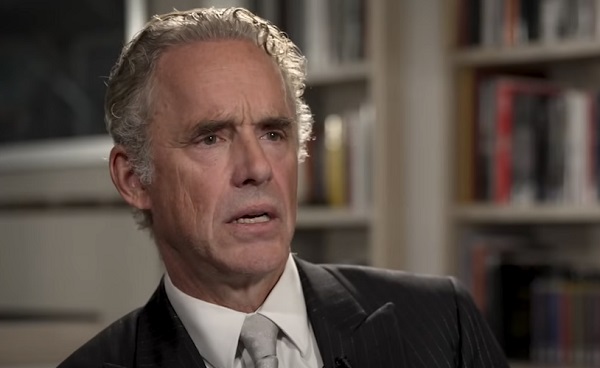Energy
U.S. EPA Unveils Carbon Dioxide Regulations That Could End Coal and Natural Gas Power Generation

From Heartland Daily News
By ![]() Tim Benson
Tim Benson
The U.S. Environmental Protection Agency (EPA) announced new regulations on April 25 that would force coal-fired power plants to reduce or capture 90 percent of their carbon dioxide emissions by 2039, one year earlier than in the rule originally proposed in May 2023.
Other newly announced coal regulations include a final rule “strengthening and updating the Mercury and Air Toxics Standards (MATS) for coal-fired power plants, tightening the emissions standard for toxic metals by 67 percent, finalizing a 70 percent reduction in the emissions standard for mercury from existing lignite-fired sources,” and another rule to “reduce pollutants discharged through wastewater from coal-fired power plants by more than 660 million pounds per year.” The EPA also issued an additional rule to require the safe management of coal ash in locations not previously covered by federal regulations.
“Today, EPA is proud to make good on the Biden-Harris administration’s vision to tackle climate change and to protect all communities from pollution in our air, water, and in our neighborhoods,” said EPA Administrator Michael S. Regan. “By developing these standards in a clear, transparent, inclusive manner, EPA is cutting pollution while ensuring that power companies can make smart investments and continue to deliver reliable electricity for all Americans.”
EPA estimates its new regulations will reduce carbon dioxide emissions by 1.38 billion metric tons by 2047 and create $370 billion in “climate and public health net benefits” over the next twenty years.
Coal in a Regulatory Decline
Partially due to increasingly stringent regulations, electricity generation from coal has fallen from 52 percent of the nation’s total output in the 1990s to just 16.2 percent in 2023. Critics of the new regulations, including Jason Isaac, CEO of the American Energy Institute, argue that EPA’s new rules would make it impossible to open new coal plants and will effectively force those already online to shut down operations.
“These rules are a direct attack on an important and necessary source of American energy—one of our most affordable, reliable resources, and one that is essential here and growing in use around the world,” said Isaac. “The ignorance of this administration is negligent at best, criminal at worst, relegating the least among us to more expensive energy, or even none at all, as millions of Americans are finding out by having their electricity disconnected.
“On one hand they push to electrify everything and then with the other leave us with unreliable electricity,” Isaac said. “The Biden administration is hell bent on destroying coal and reaching new levels of recklessness.”
‘De Facto Ban’ on Coal
The new regulations almost assuredly will face legal challenges from the coal industry and others, says Steve Milloy, founder of JunkScience.com.
“Another unconstitutional EPA rule from the Biden regime that will be DOA at [the Supreme Court] but not until much harm has been caused,” said Milloy. “Congress has not authorized EPA to issue regulations that operate as a de facto ban on coal plants, yet that’s what this regulation amounts to because it mandates emissions control technology (i.e., carbon capture and sequestration) which does not, and will never, exist for coal plants.”
EPA, by contrast, says carbon capture and sequestration (CCS) is the “best system of emission reduction for the longest-running existing coal units” and a “cost-reasonable emission control technology that can be applied directly to power plants and can reduce 90 percent of carbon dioxide emissions from the plants.”
“The requirement for imaginary technology violates Clean Air Act notions of only requiring the best available and adequately tested technology,” Milloy said. “The de facto ban violates the 2022 [Supreme Court] decision in West Virginia v. EPA, which established the major questions doctrine, under which agencies cannot undertake significant new actions, like banning coal plants, without authorization from Congress.”
Natural Gas Targeted, Too
Coal plants were not the only target of new EPA regulations, as natural gas power plants are also now required to eliminate or capture 90 percent of their carbon dioxide emissions by 2032, three years earlier than called for when the draft rule was originally proposed in 2023.
The EPA is acting as if it has absolute power unconstrained by the law and prior court rulings, Darren Bakst, director of the Competitive Enterprise Institute’s Center on Energy & Environment, says in a press release.
“The [EPA] absurdly thinks its authority to regulate means it has the authority to shut down businesses,” said Bakst. “Establishing new regulations for power plants does not mean the agency can effectively force them out of business.
“This is Clean Power Plan Part II, but like with many sequels, it is worse,” Bakst said.
Tim Benson ([email protected]) is a senior policy analyst with Heartland Impact.
For more on the Biden administrations power regulations, click here.
Business
28 energy leaders call for eliminating ALL energy subsidies—even ones they benefit from

Energy Talking Points by Alex Epstein
 Alex Epstein
Alex Epstein
This is the kind of integrity we need from industry—and from Congress.
Dear Chairman Smith and Chairman Crapo:
We, the undersigned American energy producers and investors, write to voice our principled support for full repeal of the Inflation Reduction Act’s (IRA) energy subsidies, including subsidies that would appear to be to our firms’ and industry’s benefit. This is the only moral and practical path forward if we are to truly unleash American energy.
In recent weeks, Congress has been embroiled in battles over which, if any, of the IRA energy subsidies to cut. Lobbyists representing every corner of the energy landscape, including trade groups that many of us are part of, are jockeying to preserve their own piece of the pie, claiming that it is uniquely valuable.
We have oil lobbyists fighting to keep carbon capture and hydrogen subsidies, solar and wind lobbyists fighting to keep solar and wind subsidies, biofuel lobbyists fighting to keep biofuel subsidies, and EV lobbyists fighting to keep EV subsidies.
If this continues, we will likely preserve most if not all of the subsidies, which, deep down, everyone knows are not good for America.
The fundamental truth about subsidies is very simple. For any product, including energy, a subsidy is just a way of taking money from more efficient producers—and from taxpayers—and giving it to less efficient producers. The result is always less efficient production and therefore higher costs or lower quality for Americans.
The most egregious example of subsidies’ destructiveness is the IRA’s solar and wind subsidies, which pay electric utilities to invest much more money in solar and wind than they otherwise would, and thus much less in coal and gas than they otherwise would. Ultimately this means higher electricity prices and certainly less electricity reliability for Americans.
The IRA subsidies’ devastating harm to American energy is more than enough to compel us, as energy producers, to oppose them.
But their harm goes far beyond energy, as they will dramatically increase our debt and ultimately undermine every aspect of our economy.
A central Congressional priority is to curb the national debt during the upcoming budget reconciliation exercise. But according to credible estimates, the IRA will cost over $1 trillion over the next decade and trillions more after that. Worse, the IRA subsidies are expected to misallocate, into uncompetitive business and jobs, $3 trillion of investment by 2032 and $11 trillion by 2050. That’s a disaster for our economy, and for real job opportunities.
Clearly, the right thing to do is to eliminate all these subsidies. When lobbyists say that these subsidies are essential for America, what they’re really saying is that their backers have made investments in projects that have no near term cost-effectiveness and that are totally dependent on indefinite subsidies to sustain themselves.
Most people know the truth, but are afraid to say it due to institutional pressures. Too many Congressmen are afraid of alienating trade groups. Too many trade groups are afraid of alienating their large and vocal members who have made investments hoping for indefinite subsidies. All the while, too few are talking about freedom.
That’s why we invite our colleagues to do the right thing: level with the American people, say that we made a mistake, and that those who built subsidy-dependent businesses took on the kind of risk that we do not want to reward.
Keeping the IRA subsidies—despite all the evidence that they benefit only special interests at the expense of America—risks making our nation ever more like Europe, where industries do not succeed by providing the best value to consumers, but by providing the best favors to politicians. That’s not the America we want to work in.
Sincerely,
Bud Brigham, Founder, Atlas Energy Services and Brigham Exploration
David Albin, Managing Partner, Spectra Holdings
Adam Anderson, CEO, Innovex International
Thurmon Andress, Chairman and CEO, Andress Oil
Don Bennett, Managing Partner, Bennett Ventures LP
Greg Bird, CEO and President, Jetta Operating Company
David de Roode, Partner, Lockton
Andy Eidson, CEO, Alpha Metallurgical Resources
Matt Gallagher, President and CEO, Greenlake Energy
Mike Howard, CEO, Howard Energy
Justin Thompson, CEO, Iron Senergy
Ed Kovalik, CEO, Prairie Operating Company
Thomas E. Knauff, Executive Chairman, EDP
Lance Langford, CEO, Langford Energy Partners
Mickey McKee, CEO, Kodiak Gas Services
Mike O’Shaughnessy, CEO, Lario Oil and Gas Company
D. Martin Phillips, Founder, EnCap Investments LP
Karl Pfluger, midstream executive
David Rees-Jones, President, Chief Energy
Rob Roosa, CEO, Brigham Royalties
Bobby Shackouls, Former CEO, Burlington Resources
Ross Stevens, Founder and CEO, Stone Ridge Holdings Group
Kyle Stallings, CEO, Desert Royalty Company
Justin Thompson, CEO, Iron Senergy
Mike Wallace, Partner, Wallace Family Partnership
Ladd Wilks, CEO, ProFrac
Denzil West, CEO, Admiral Permian Operating
Bill Zartler, Founder and CEO, Solaris Oilfield Infrastructure
Additional signatories (email [email protected] to add yours):
Jimmy Brock, Executive Chairman, Core Natural Resources
Ted Williams, President and CEO, Rockport Energy Solutions LLC
To make sure as many politicians as possible see this letter, help us by sharing on Twitter/X and tagging your Congressmen! Congress is currently undecided about what to do about the IRA subsidies, so now is the moment to make your voice heard.
“Energy Talking Points by Alex Epstein” is my free Substack newsletter designed to give as many people as possible
access to concise, powerful, well-referenced talking points on the latest energy, environmental,
and climate issues from a pro-human, pro-energy perspective.
Alberta
Alberta’s massive oil and gas reserves keep growing – here’s why

From the Canadian Energy Centre
Q&A with Mike Verney, executive vice-president, McDaniel & Associates
New analysis commissioned by the Alberta Energy Regulator has increased the province’s natural gas reserves by 440 per cent, bumping Canada into the global top 10.
Alberta’s oil reserves – already fourth in the world – also increased by seven billion barrels.
The report was conducted by Calgary-based consultancy McDaniel & Associates. Executive vice-president Mike Verney explains what it means.
CEC: What are “reserves” and why do they matter?
Verney: Reserves are commercial quantities of oil and gas to be recovered in the future. They are key indicators of future production potential.
For companies, that’s a way of representing the future value of their operations. And for countries, it’s important to showcase the runway they have in terms of the future of their oil and gas.
Some countries that have exploited a lot of their resource in the past have low reserves remaining. Canada is in a position where we still have a lot of meat on the bone in terms of those remaining quantities.
CEC: How long has it been since Alberta’s oil and gas reserves were comprehensively assessed?
Verney: Our understanding is the last fully comprehensive review was over a decade ago.
CEC: Does improvement in technology and innovation increase reserves?
Verney: Technological advancements and innovation play a crucial role in increasing reserves. New technologies such as advanced drilling techniques (e.g., hydraulic fracturing, horizontal drilling), enhanced seismic imaging and improved extraction methods enable companies to discover and access previously inaccessible reserves.
As these reserves get developed, the evolution of technology helps companies develop them better and better every year.
CEC: Why have Alberta’s natural gas reserves increased?
Verney: Most importantly, hydraulic fracturing has unlocked material volume, and that’s one of the principal reasons why the new gas estimate is so much higher than what it was in the past.
The performance of the wells that are being drilled has also gotten better since the last comprehensive study.
The Montney competes with every American tight oil and gas play, so we’re recognizing the future potential of that with the gas reserves that are being assigned.
In addition, operators continue to expand the footprint of the Alberta Deep Basin.
CEC: Why have Alberta’s oil reserves increased?
Verney: We discovered over two billion barrels of oil reserves associated with multilateral wells, which is a new technology. In a multilateral well, you drill one vertical well to get to the zone and then once you hit the zone you drill multiple legs off of that one vertical spot. It has been a very positive game-changer.
Performance in the oil sands since the last comprehensive update has also gone better than expected. We’ve got 22 thermal oil sands projects that are operating, and in general, expectations in terms of recovery are higher than they were a decade ago.
Oil sands production has grown substantially in the past decade, up 70 per cent, from two million to 3.4 million barrels per day. The growth of several projects has increased confidence in the commercial viability of developing additional lands.
CEC: What are the implications of Alberta’s reserves in terms of the province’s position as a world energy supplier?
Verney: We’re seeing LNG take off in the United States, and we’re seeing lots of demand from data centers. Our estimate is that North America will need at least 30 billion cubic feet per day of more gas supply in the next few years, based on everything that’s been announced. That is a very material number, considering the United States’ total natural gas production is a little over 100 billion cubic feet per day.
In terms of oil, since the shale revolution in 2008 there’s been massive growth from North America, and the rest of the world hasn’t grown oil production. We’re now seeing that the tight plays in the U.S. aren’t infinite and are showing signs of plateauing.
Specifically, when we look at the United States’ largest oil play, the Permian, it has essentially been flat at 5.5 million barrels per day since December 2023. Flat production from the Permian is contrary to the previous decade, where we saw tight oil production grow by half a million barrels per day per year.
Oil demand has gone up by about a million barrels a day per year for the past several decades, and at this point we do expect that to continue, at the very least in the near term.
Given the growing demand for oil and the stagnation in supply growth since the shale revolution, it’s expected that Alberta’s oil sands reserves will become increasingly critical. As global oil demand continues to rise, and with limited growth in production from other sources, oil sands reserves will be relied upon more heavily.
-

 Business2 days ago
Business2 days agoA Look at Canada’s Import Tariffs
-

 Agriculture2 days ago
Agriculture2 days agoIt’s time to end supply management
-

 COVID-192 days ago
COVID-192 days ago10 Shocking Stories the Media Buried This Week
-

 David Clinton2 days ago
David Clinton2 days agoYou’re Actually Voting for THEM? But why?
-

 2025 Federal Election2 days ago
2025 Federal Election2 days agoIt’s on! Federal Election called for April 28
-

 Business2 days ago
Business2 days agoTrump Tariffs are not going away. Canada needs to adapt or face the consequences
-

 International21 hours ago
International21 hours agoPope Francis appears frail as he returns to Vatican following 38-day hospital stay
-

 Alberta17 hours ago
Alberta17 hours agoFederal emissions plan will cost Albertans dearly








